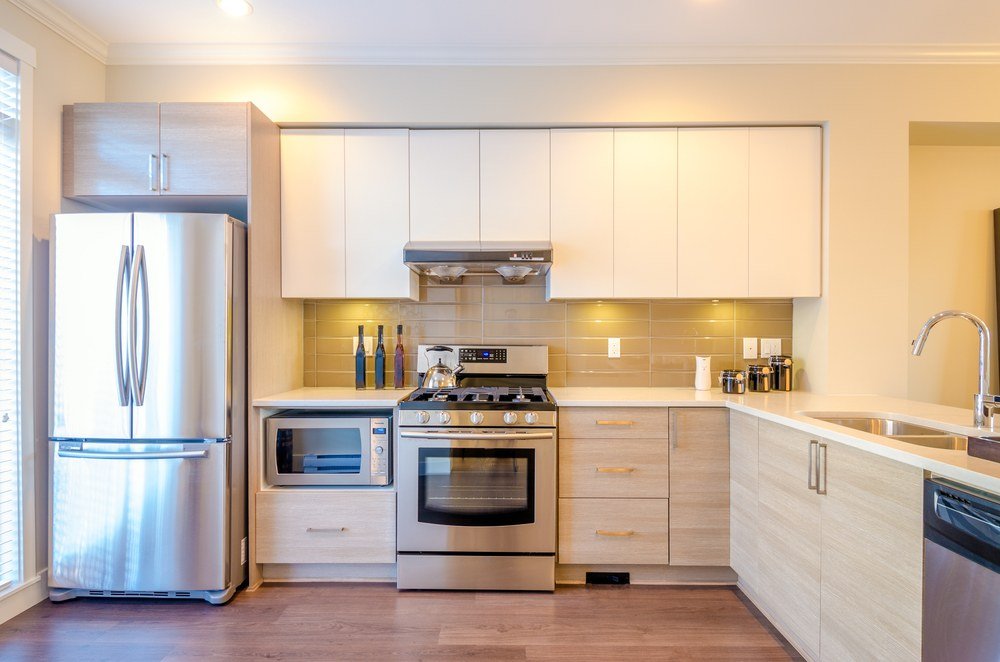
Energy efficiency at its most basic refers to reducing the amount of energy consumed. It is achieved by the use of lesser amounts of energy to achieve the same level of output. For instance, a 12-watt LED bulb that is energy efficient utilizes 75 to 80% less energy than a traditional 60-watt bulb but still offers a similar amount of light. The increase of environmental problems resulting from greenhouse gas emissions and an increase in the cost of energy have all resulted in increased advocacy for efficient energy sources. Appliances and products have also taken over the green energy trend, with more and more appliances and products being more energy efficient every year. Homes are also adopting the green energy trend, with the number of potential homeowners asking for energy ratings before deciding whether to buy a property being on the increase. It is thus important that anyone wishing to build a home either for residential or commercial purposes to always aim at installing renewable forms of energy in their homes. Visit sites review sites such as Britainreviews.co.uk to see renewable energy companies UK reviews. Avoid the negatively reviewed companies, and this way, you will get a reputable company to install renewable forms of energy such as solar in your home. This article offers important information on how you can achieve energy efficiency, especially for your appliances.
Tips on buying energy-efficient appliances
1. Always purchase appliances that have energy-saving settings
This is especially important for dishwashers. When dishes are only slightly dirty, a light wash is enough to clean them. Having a full-powered wash will only end up using more water and energy than needed. A dishwasher with an energy saver or eco saver setting will help you save water and energy and doesn’t sacrifice the capability to achieve heavy-duty cleaning when the need arises. Some washing machines also have energy-saver settings. Opt for such.
2. Always look for the Energy guide label
Appliances that are energy star certified have a special sticker to mark this. Regulations also require that appliance have a label that guides their energy consumption. The label should offer the efficacy statistics of the specific appliance, including basics such as model and size and estimations of its annual consumption of energy and operating cost. Though energy guide labels only display the average cost of using the appliance, they give an insight into the amount of cash you will be saving or spending by using the appliance.
3. Look if it’s possible to get a cheaper source of power
A vital factor in an appliances overall cost of operation is the type of power source. This is especially important for water heaters. In most cases, natural gas is always cheaper than electricity; however, natural gas has a higher upfront cost. The overall savings after you’ve installed natural gas are worth having it.
4. Select the appropriate size
Size matters when it comes to appliances and, most importantly, for HVAC systems. Professionals indicate that too small air conditioning units tend to stay on for lengthy periods, thus reducing their efficacy. On the other hand, too large appliances tend to have more regular on and off cycles, affecting their efficiency. The questions that could probably be running on your mind now is what is the perfect size of the air conditioner to go for. Typically, HVAC performance is measured by a variable referred to as the British thermal unit (BTU). A home space ranging between 2,000 to 2,5000 square feet needs an HVAC system that provides about 34,000 BTU in an hour. A lesser home of about 1,000 to 1,200 square feet will only require an HVAC unit offering about 21,000 to 24,000 BTU in an hour. Other appliances will also have a similar principle. For washing machines, you can maximize the efficiency by ensuring that each time you wash a whole load of clothes, in instances where at no time do you have enough dirty clothes to fill your big washing machine, then it isn’t worth using it. You can consider having a smaller one.
5. Prioritize
Particular appliances will use more energy than other appliances. We should thus focus on replacing the most energy-hungry appliances and those that are least efficient first. Start by identifying which of your present appliance requires the greatest amount of energy to operate. Proceed to figure out which of these appliances could be upgraded to achieve the highest monthly utility savings as well as efficiency. The initial high price should not discourage you. After all, the overall savings is worth it, and there are special financing options available.
In conclusion, it is essential to have energy-efficient appliances. They will help save on energy bills and are also are beneficial to the environment as they reduce environmental pollution.